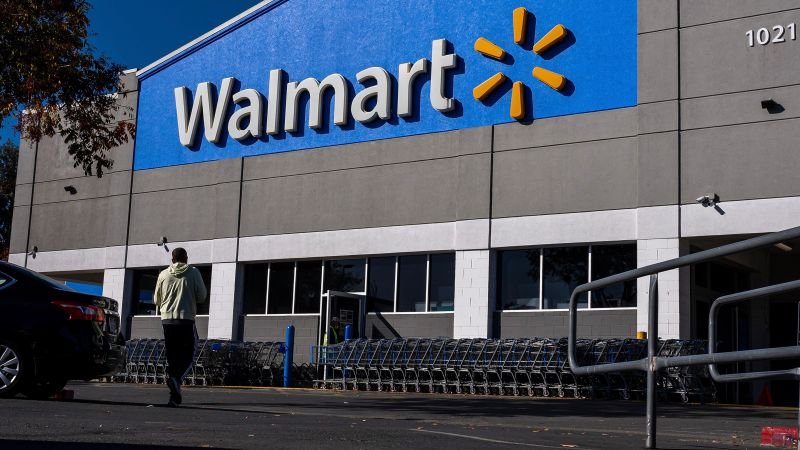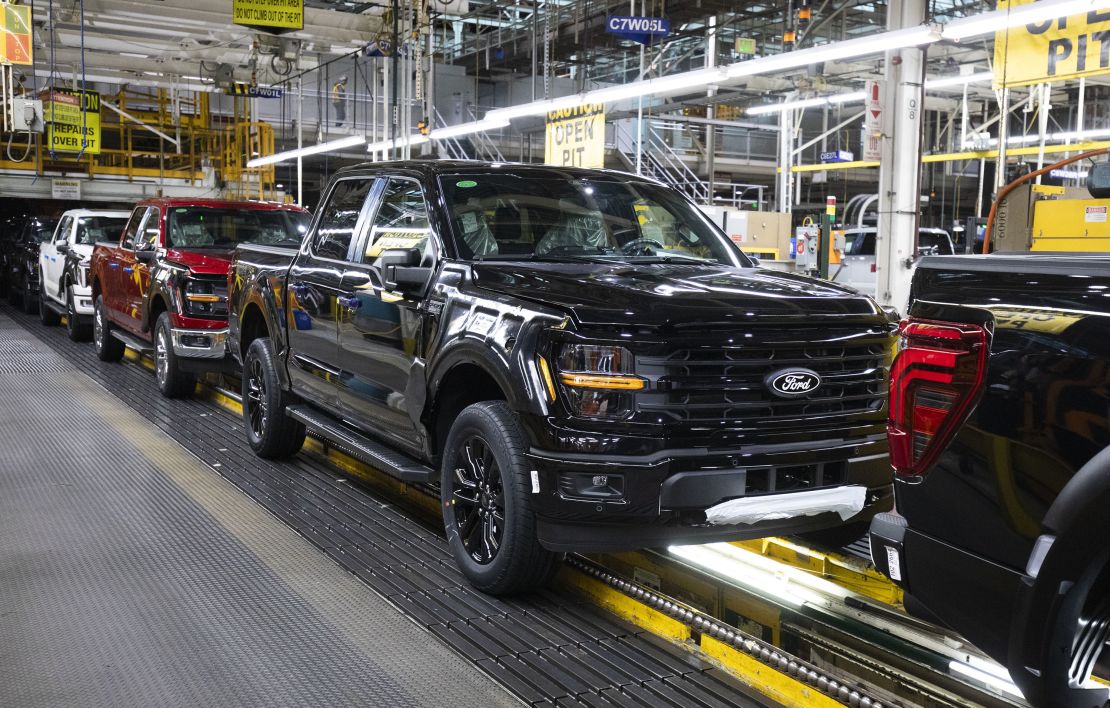Physical Address
304 North Cardinal St.
Dorchester Center, MA 02124
Physical Address
304 North Cardinal St.
Dorchester Center, MA 02124

New York
CNN
—
Walmart, Ford and other companies are making changes diversity, equity and inclusion (DEI) policies to respond to online pressure, legal threats and anti-customer initiatives.
But activists are skimming the surface changes many companies are making to take the heat off, a CNN review of company policies and interviews with consultants and DEI supporters found. DEI, while under the harsh scrutiny of critics who say this isreverse discrimination,” is alive and well in corporate America.
Almost all of America’s largest companies say they are still committed to promoting DEI. Few companies have completely abandoned DEI efforts, and only a small number have made any changes at all. The Heritage Foundation, a conservative think tank opposed to DEI, find as of last month, 486 of the Fortune 500 companies still have a statement or corporate commitment to DEI on their websites.
There is no single definition of DEI, but it is generally a mix of workforce training, workforce resource networks, and hiring practices to advance the representation of people of different races, genders, and classes, people with disabilities, veterans, and others.
Just because a company has a DEI statement on its website doesn’t mean it’s doing anything, and it’s unclear how these programs have worked or how effective they might be. But companies are still working to hire and promote a broader pool of candidates than they did a few years ago, experts say. And companies still believe that expanding their recruiting efforts, talent retention and customer acquisition strategies to underrepresented groups is good for their bottom line.
“DEI will not go. It’s changing,” said J. Danielle Carr, director of inclusion at Lowenstein Sandler and president of the Association of Law Firm Diversity Professionals. The organization found that just 14 of the Fortune 500 companies made public changes to their DEI teams or programs this year.
“The changes introduced by these companies were not major revisions to the work, and DEI’s commitment to focus on the core components of the work remained intact,” said Carr.
Instead of eliminating DEI policies, corporate America is changing its language.
Some companies are changing the terminology from “CALL” to “access” or “membership”. It is President-elect Donald Trump’s Department of Justice preparing attempt to dismantle DEI policies in public schools, government agencies, and other public institutions, but the ability to do so in private companies may be limited.
Companies are announcing their efforts significantly less than in 2020 and 2021.
Most companies seem to be making the most significant change participation is ending The Business Equality Index, an annual survey conducted by the Human Rights Campaign, an LGBTQ advocacy group, ranks LGBTQ policies.
But that doesn’t necessarily mean it’s the end of these programs. And it’s likely because DEI policies essentially make money.

According to the Boston Consulting Group, DEI initiatives increase profits, reduce employee attrition, and increase employee motivation. research Based on data from over 27,000 employees in 16 countries. McKinsey find that companies with more diversity in their boards of directors will have higher financial performance.
“We hear that most companies continue with DEI programs. They’ll just talk less about it. They don’t want to attract someone like Robby Starbuck,” said Kai Liekefett, head of Sidley Austin’s shareholder activism and corporate defense practice, referring to one of the activists who lead campaigns against DEI.
“I’m not sure all that substance will change,” he said. “It’s widely recognized that DEI programs are valuable.”
Starbuck is riding a wave of right-wing hostility toward DEI programs and corporate advocacy on issues like climate change and LGBTQ rights.
It has harnessed the energy of the right to target specific brands popular with politically conservative customers – Harley-Davidson, Tractor Supply Co. and John Deere — and they consistently paid attention to past publicly expressed policies online.
“Any movement for transformative change starts with momentum and we clearly have momentum,” Starbuck told CNN via text message. “I would describe this current period as the beginning of the end of the CALL and awakening.”
Some notable wins include: Tractor Supply eliminated DEI and carbon emissions roles, and Molson Coors completed supplier diversity goals.
But most companies that have recently changed their DEI policies in the face of pressure from Starbuck’s are making performative adjustments.
Take Ford, John Deere or Walmart.
In August, Ford stopped participating in all outside culture polls, not just those about the Human Rights Campaign. Ford reiterated that it does not use hiring quotas — critics often say DEI policies are racial quotas — and said each of its employee resource groups was open to all employees.
Starbuck took the credit, saying “@Ford was investigating wake policies, but this morning Ford confirmed to me that they are making changes.”

But CEO Jim Farley said in a statement at the time that Ford had spent the past year reviewing its policies. Ford remains committed to “creating an inclusive workplace and building a team that leverages diverse perspectives, backgrounds and thinking styles,” he said.
Ford told CNN that his policy to promote diversity and inclusion at the company remained in place. Ford also still has a DEI CEO.
The changes at John Deere were also not as big as Starbuck’s said or as some outlets initially reported.
“Deere Cuts Diversity Initiatives After Backlash From Conservative Activists,” The Wall Street Journal reports. “John Deere withdraws from diversity and inclusion efforts,” CNN said.
Deere said it will not participate in or sponsor festivals and cultural events and will review training materials and policies to ensure they do not contain “socially motivated messages,” which Deere has supported and said will continue to encourage diversity at the company. track diversity
“We fundamentally believe that a diverse workforce allows us to best meet the needs of our customers,” Deere said in a statement in July.
Deere did not respond to CNN’s requests for comment.
It was Starbuck’s biggest and newest target Walmart.
Walmart said last month it was ending racial equality training programs for employees and revising programs designed to increase supplier diversity. The company has worked in recent years to increase the number of suppliers that are at least 51% owned or operated by someone who is a woman, minority, veteran or LGBTQ.
The company is reviewing all funding for Pride parades and other events and monitoring its online marketplace to “identify and remove inappropriate sexual or transgender products marketed to children.”
Walmart also said it would not extend its Center for Racial Equity — a five-year, $100 million philanthropic commitment the company made in 2020 to address the root causes of black Americans’ achievement gaps in education, health, criminal justice and other areas.
“We are ready to change together with our partners and customers who represent all of America,” Walmart said in a statement at the time. “We’ve been on a journey and we know we’re not perfect, but every decision comes from a place of wanting to foster a sense of belonging.”
“This is the biggest victory for our movement to end corporate America,” Starbuck said of the development. X.
But Ying McGuire, CEO of the National Minority Supplier Development Council, told CNN that Walmart and other companies are still focused on expanding opportunities for underrepresented suppliers, including businesses owned by women, veterans and people with disabilities.
“It’s politics and semantics. Activists have strong incentives to overstate change,” he said.
McGuire isn’t worried that minority suppliers will receive fewer opportunities from Walmart and other companies. It makes good business sense for companies to seek out the widest range of suppliers and select the most competitive ones, he said.
“Walmart has had a very long history of supplier diversity. They’ve been leaders in this space. They’ve made significant strides in engaging with minority-owned businesses,” he said. “Walmart is changing its messaging and trying to address risk.”